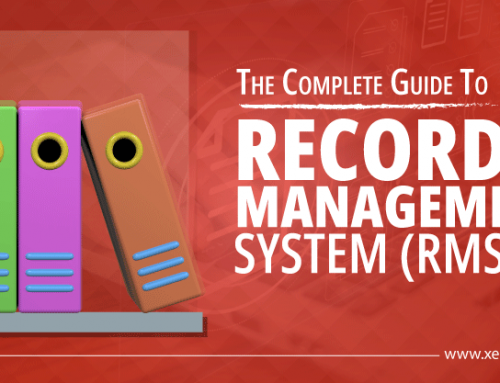Managing your files and documents is one of the most important aspects of your job, we can guarantee it. We all work hard and the documents we produce/edit/review are the evidence of this – the last thing we want is them going up in smoke or vanishing into the ether.
As your trusted document advisor, at Xeratek Document Solutions we believe we are more than qualified to share some of our recommendations to help ensure this never happens to you.
It’s all about being organised; take the time to follow the steps below and see what a difference it makes to your efficiency, teamwork and peace of mind:
1. Label files sensibly and clearly – you need to be able to find files easily and quickly, and for other team members to be able to find them easily too. Make sure you label everything so as it makes sense to a new starter.
2. Be specific with your labelling and include dates – you should be able to tell what the file is without opening it (just be careful not to make the file name too long). Ensure drafts and final content are labelled as such and be careful with abbreviations as these may not make sense in the future or to others, unless they are well known industry terms.
3. Use folders – store all files (including shared ones) in one main root folder and create subfolders from this. Make sure all files are within a folder and not loose (having said this, there is generally little point having less than five files in a folder, so think carefully about how you organise these).
4. Don’t over complicate it – there is no need for lots of layers within your folders; sort them by key customers/clients/projects and create the same subfolders (correspondance, background, billing, reports, etc) within each for consistency within your teams.
5. Ensure folders are listed in a specific order that makes them easier to scan through rather than just alphabetically (by size of client or by calendar month for example), use numbers first to ensure they are listed as you wish to see them, i.e. 01. Jan, 02. Feb.
6. Begin with the end in mind – this is great advice from Stephen Covey’s 7 Habits of Highly Successful People. In terms of data storage and management, this means making sure you get into the habit of saving your documents with the right titles in the right place from the outset, rather than trying to transfer later and potentially creating duplicates and confusion.
7. Have a clear out every quarter – move old files to an ‘archive’ or ‘inactive’ subfolder to ensure that only your current active files are immediately visible – and don’t save files that are not necessary!
8. Make sure you scan all paper docs immediately and save the digital files within your root folder – paper can burn or get lost!
9. Back up files regularly – ensure nothing is ever lost by having a reliable back up system.
10. Create a shortcut on your desktop to key folders for files you need to access quickly and often.
These tips can make such a difference to the way you work and will prevent the potentially embarrassing scene of you scrabbling around for a document when you have an important client on the phone or your boss looking over your shoulder! Spend the time organising your folders now and you’ll be thanking us for it in the long run!
If you require any support with choosing the right Document Management System, or implementing one within your company then don’t hesitate to contact us.






